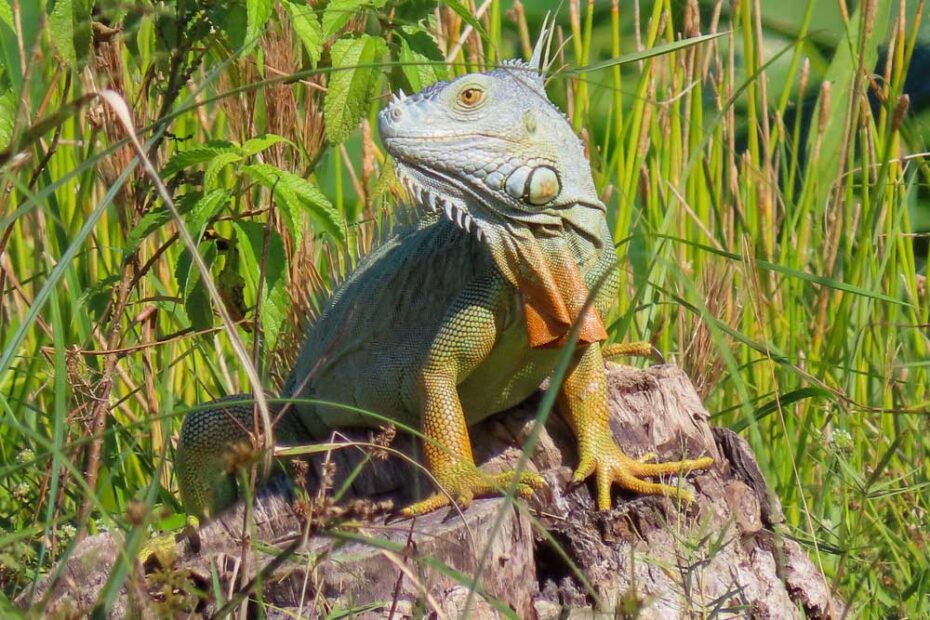Iguanas, like many reptiles, are cold-blooded animals that are unable to generate their own body heat. As a result, they are highly sensitive to changes in temperature and can easily become hypothermic in cold weather. When temperatures drop below 50 degrees Fahrenheit, iguanas will often become torpid or “freeze.” This is a state of reduced metabolism and movement where the iguana’s body temperature drops to the surrounding air temperature.
During this state, the iguana’s body functions slow down, and they become less responsive to their environment. They may appear to be dead, but they are still alive. When temperatures rise, the iguana will thaw out and return to normal activity.
It’s important to note that iguanas are native to tropical and subtropical regions of Central and South America and are not well adapted to the colder temperatures of South Florida. When temperatures drop below 50 degrees Fahrenheit, iguanas can suffer from hypothermia and may not survive.
If you come across a frozen iguana, it is important not to touch it or try to warm it up. Even though the iguana may appear dead, it is still alive and you could harm it. Instead, you should call a local wildlife rehabilitation center or a veterinarian that specializes in reptiles. They will be able to care for the iguana properly and provide it with the necessary medical treatment.
It’s also important to note that keeping iguanas as pets is illegal in some states, including Florida. It’s also not recommended, as they can easily become sick or stressed in captivity and can be a danger to native wildlife if released. According to the Florida Fish and Wildlife Conservation Commission (FWC), effective as of April 29, 2021, “Green iguanas were added to Florida’s Prohibited species list. Learn how this impacts pet owners and other entities.”
In conclusion, iguanas freeze in cold weather as a survival mechanism, and it’s normal behavior for them. However, if temperatures drop below 50 degrees Fahrenheit, iguanas can suffer from hypothermia and may not survive. If you come across a frozen iguana, it is important not to touch it or try to warm it up, but instead, call a local wildlife rehabilitation center or a veterinarian that specializes in reptiles for proper care. Additionally, keeping iguanas as pets is not recommended and is illegal in some states.
